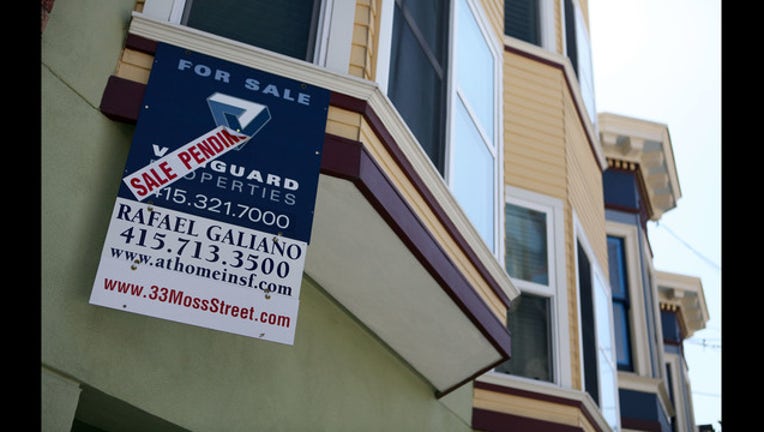UC Berkeley housing report shows a re-segregation of the Bay Area

FILE -- A file photo of a San Francisco property with a sale pending sign. A new report from UC Berkeley says high housing costs have led to a wave of racial and income segregation. (Photo by Justin Sullivan/Getty Images)
BERKELEY, Calif. (BCN) - Soaring Bay Area housing costs have led to a wave of racial and income segregation, according to a new report from the University of California at Berkeley.
The study, announced Wednesday by UC Berkeley's Urban Displacement Project and the California Housing Partnership, shows rising housing costs between 2000 and 2015 contributed to displacement of primarily low-income people of color and formed new concentrations of poverty and racial segregation in the region.
"Our research provides quantitative evidence of what activists have been saying for years - the housing crisis is contributing to the re-segregation of the Bay Area," Miriam Zuk, director of the Urban Displacement Project, said.
In one example, the report found that 65 percent of San Francisco's low-income black households lived in high-poverty segregated neighborhoods in 2015 - a substantially higher rate than low-income groups of other races.
As home costs rose from 2000 to 2015, the city of Richmond, the flatland areas of Oakland and Berkeley and the Bayview district in San Francisco lost thousands of low-income black households to areas with lower housing prices, such as Antioch and Pittsburg as well as Hayward and the unincorporated East Bay communities of Ashland and Cherryland, the report showed.
Researchers involved in the study say cities and counties in the Bay Area need policies and investments that support housing affordability and better access to neighborhoods with quality educational and economic opportunities.
Displacement pushes low-income people of color "into higher-poverty, lower-resource neighborhoods where the odds are stacked against them," Matt Schwartz, president of the California Housing Partnership, said. "We can and must do better."
Further UC Berkeley research from the Haas Institute for a Fair and Inclusive Society, shows rent control policies are key to stabilizing the state's housing crisis. The research brief found that rent control, when applied with other housing policies, can prevent housing costs from spiraling out of control and forcing families to leave their neighborhoods.
The analysis comes as California voters prepare to consider Proposition 10 on the November ballot. Currently, a 1995 state law prohibits cities from adopting rent control ordinances on single-family homes and condos as well as homes built after February 1995, the report said.
If passed, Prop 10 would repeal the law, allowing cities to consider adopting rent control on all types of housing.

